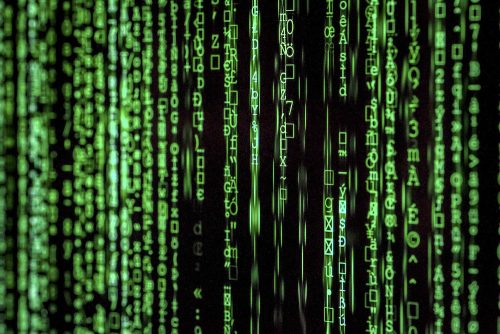By Gloria Gomez/UA Don Bolles Fellow/AZ Mirror
PHOENIX — Every voter who casts a ballot would have their name and address published online by election officials under a proposal being backed by Republican legislators.
The secretary of state would also have to say whether each voter cast their ballot early or in person on Election Day.
The measure is one of a host of conservative responses to the false idea that rampant voter fraud occurred in the 2020 election. The bill’s sponsor, Sen. John Kavanagh, said its intent is to increase transparency.
“Nothing like a little bit of sunshine to allay people’s concerns that things are not being totally above board,” Kavanagh told the Senate Government Committee Monday.
The Fountain Hills Republican said he developed House Bill 2780 with former Secretary of State Ken Bennett, who served as the Senate’s liaison for the so-called “audit” last year. Bennett claimed that work alerted him to weaknesses in the system that have led to a lack of confidence in elections.
“Our elections need to be transparent, trackable and publicly verifiable,” Bennett said on Monday.
Republicans in Arizona and in state legislatures across the nation are pushing hundreds of measures to add barriers to voting and make it easier for them to overturn results they don’t like, often under the guise of stopping the exceedingly rare election fraud that they falsely claim is the reason why Democrats won close races in 2018 and 2020.
Former President Donald Trump has loudly and falsely asserted that his 2020 loss was due to rampant fraud, though numerous election audits and examinations across the country have failed to turn up any evidence.
Under Kavanagh’s bill, county recorders would be required to post a list of the names and addresses of all eligible voters on the county’s website 10 days before primary and general elections. That list would include both active and inactive voters.
When the bill was approved last month by the House of Representatives, county election officials would have also been required to publish the names, addresses and method of voting for every voter who cast a ballot after every election. But Republicans on the Government Committee amended the bill to shift that responsibility to the secretary of state, who would publish that information for all Arizona voters after each election.
The bill would also require all ballot images to be published, along with a way to link those ballot images to the post-election record of cast votes.
Currently, ballots undergo a complex multi-step process to be counted and verified which includes everything from public live streaming to individual barcodes for personal and official tracking.
There is no identifying information on ballots that would indicate which individual voters cast them.
Jen Marson, executive director of the Arizona Association of Counties, said that posting ballots online, as the bill’s original language indicated, could put election officials at risk of lawsuits because their content isn’t being redacted.
“You would be surprised what people write on their ballots,” she said.
There’s also no protection from people using the documents to accuse the counties of malfeasance, Marson said. The bill instructs county recorders to provide an identifying indicator for each ballot image to check against the actual vote record and confirm the tabulation results by ballot batch. That means anyone could potentially download an image, alter it and claim that the counties purposely miscounted it.
The committee approved the bill on a 4-2 party-line vote. Its next stop is the Senate floor, where it will be considered by the full chamber.
Gloria Gomez, a senior at the University of Arizona, is the 2022 UA School of Journalism’s Don Bolles Fellow working with editors from the Arizona Mirror. Gomez has interned at the Arizona Daily Star and worked at the Arizona Daily Wildcat. She is a dual major in journalism and political science, with a Spanish minor. She’s a member of the Investigative Reporters and Editors and National Association of Hispanic Journalists. The UA School of Journalism started the fellowship in 1977 to honor Don Bolles, an Arizona Republic reporter killed in a 1976 car bombing.

